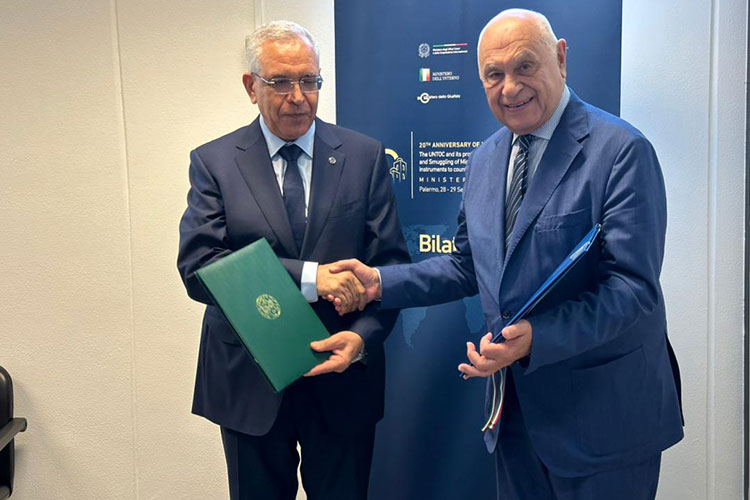Algerian-Italian Extradition Agreement

The Italian Council of Ministers officially gave the green light to the extradition treaty between Algeria and Italy, which also introduced the possibility of extradition according to simplified and temporary procedures for wanted persons, and identified cases of refusal as well as organizing extradition operations based on precautionary procedural measures, or of an executive nature based on judicial decisions.
The approval of this agreement came during a meeting of the Italian Council of Ministers, on Thursday, according to a statement from the Chigi Palace (prime ministry), in which it indicated that a draft law had been approved that includes the ratification and implementation of the extradition treaty between the Italian Republic and the People’s Democratic Republic of Algeria, signed on July 22, 2003 in Algiers, the exchange of letters between the Italian government and its Algerian counterpart was signed in Palermo on September 29, 2023.
The source indicated that the ratification of this agreement, which took place during the Council of Ministers meeting, came at the suggestion of the Minister of Foreign Affairs and International Cooperation, Antonio Tajani, indicating that the treaty obligates the countries that signed it to exchange the extradition of wanted persons, whether their follow-up is on a procedural basis, that is, those that are based on Precautionary measures, or of an executive nature, that is, based on judicial decisions that have become final.
The Italian government explained that the agreement regulates and defines the crimes that fall under the treaty, as well as the procedures for extradition requests and how to implement them, and the cases in which extradition of wanted criminals may be refused.
In a statement coinciding with the exchange of letters regarding this agreement last September, between the Minister of Justice, Abderrachid Tabi, and his counterpart, Carlo Nordio. The Italian Ministry of Justice said at the time that the agreement subjected the extradition of the wanted person to the condition that the death penalty would not be applied to the convicted person when the legislation of the country of origin stipulates it and the same is applied when it is pronounced but not implemented.
It is understood from the party’s statement that the extradition of convicted criminals to the Algerian authorities will be available under the content of the signed agreement, on the basis that the Algerian judicial authorities pronounce the death penalty in many cases. Still, its application has been frozen since 1993.






